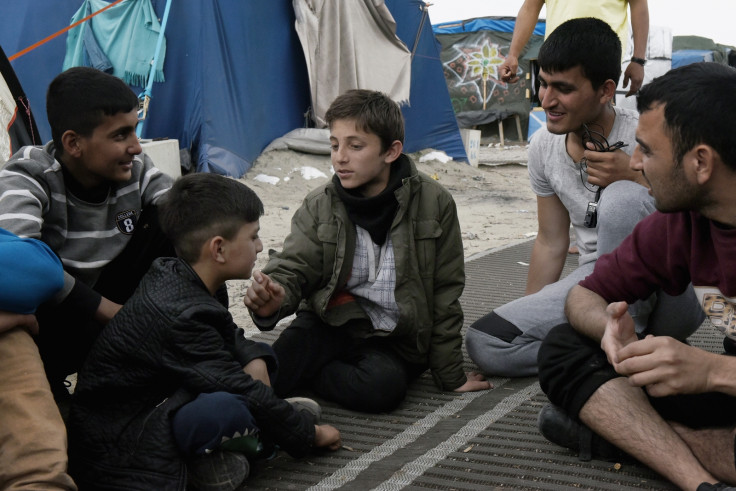Refugee crisis: 28 unaccompanied children go missing each day from Italian reception centres
Europe is failing refugee and migrant children, Oxfam claims, as increasing numbers go missing.
In one of the most worrying aspects of the migrant crisis, dozens of children go missing each day from Italy's reception centres for refugees and migrants, a leading international aid agency has warned.
Increasing numbers of refugees and migrants are taking their chances aboard overcrowded and unseaworthy dinghies or boats in a desperate attempt to reach Europe.
According to the United Nations refugee agency (UNHCR)'s latest data, 42% of the 289,374 migrants who have arrived on Europe's southern shores soil by sea so far in 2016 have landed in Italy –most of them having survived a horrific journey from Libya.
(Read more: Italy migrants influx - Libya is living hell somewhere "between the Devil and deep blue sea")
A total of 15% of all arrivals in Italy were unaccompanied children – a number UNHCR says is on the rise. By the end of July this year, 13,705 unaccompanied children had landed in Italy. In comparison, 12,360 unaccompanied minors landed in Italy in 2015.
28 children go missing each day from Italy's migrant centres
Alarmingly, a new report released by Oxfam today (7 September) revealed that, in the first six months of 2016, at least 28 unaccompanied children went missing each day from Italy's reception centres for refugees and migrants.
These minors, Oxfam stated, have run away from unsafe detention centres that the agency claims provides inadequate accommodation, preferring to live on the streets, where they are exposed to even greater danger.
Why Europe is failing refugee and migrant children
- Since Macedonia, Croatia and Slovenia announced frontier closures, effectively shutting off the Western Balkan route into Europe and the EU entered into its refugee deal with Turkey, Italy is the principal arrival point for refugees and migrants to Europe
- Italy is "ailing to cope" with the rising number of arrivals
- Migrants and refugees in Italy's so-called "hotspot" centres, where authorities register the arrivals, face chronic overcrowding, segregation, lack of adequate sanitation, scarce food and boredom
- Children are often accommodated in adult facilities, without appropriate safeguards and care
- Reported delays in appointing guardians have resulted delaying the asylum procedures
- The maximum stay in these centres is supposed to be between 48 and 72 hours, however Oxfam found minors end up being stuck there "for as long as five weeks "without a change of clothes, not even their underwear, and unable to call their family back home or relatives in Europe"
- Following registration, the minors are transferred to centres where Oxfam alleges they face abuse and violence
- Oxfam claims that allegations of abuse and violence have not been dealt with by the management
In January this year, the European Union's criminal intelligence agency Interpol warned that at least 10,000 unaccompanied child refugees had disappeared after arriving in Europe, with many falling into the hands of pan-European gangs targeting vulnerable minors for slavery or sexual and gender based violence.
"The appalling experience of children in Italy is a harsh indicator of the failure of European governments and the Italian authorities to protect children coming in search of safety," Natalia Alonso, Oxfam international's deputy director for campaigns and advocacy, said in a statement highlighting how Europe was failing refugee and migrant children.
"It also exposes the failure of Europe's wider policy approach to place the responsibilities of managing a common border upon only a few European countries. Europe must stand together to welcome the people arriving here, who are fleeing from conflict, persecution and other unbearable situations."
The Italian Ministry of Internal Affairs reported that in 2014, 3,707 unaccompanied children of the 14,243 who were registered after arriving via boat went missing from reception centres.
According to a European Union report published in July this year, the Italian parliament urged the government to adopt measures to track unaccompanied children and to investigate criminal organisations exploiting unaccompanied children in Italy.
Meanwhile, a call for tender was launched by the Ministry of Interior for improvement of the reception system for unaccompanied children in Italy, the EU said.

© Copyright IBTimes 2024. All rights reserved.







